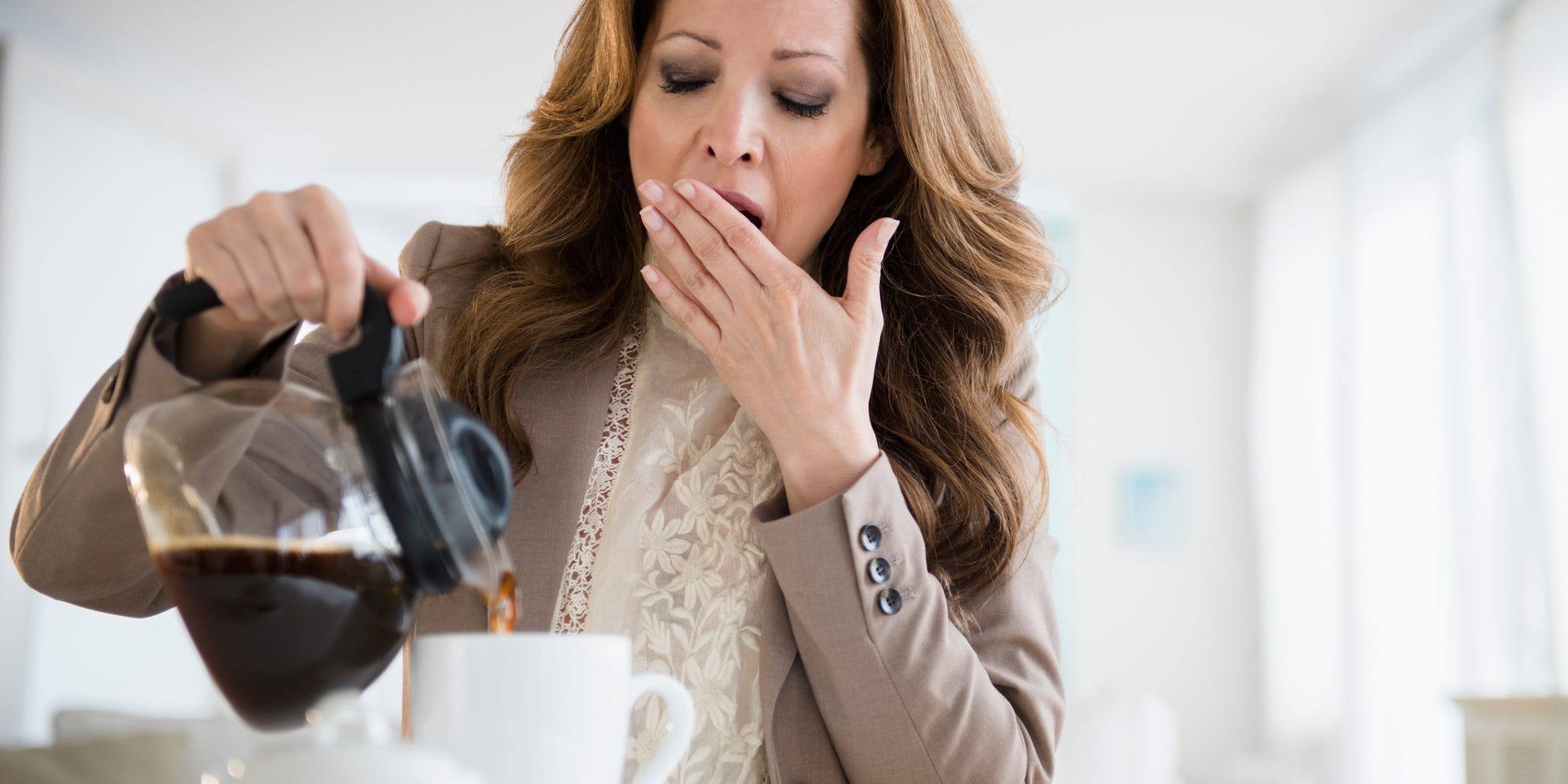
Jamie Grill/Getty Images
- If caffeine does not affect you it may be due to your genetics, lack of sleep, or increased tolerance.
- To boost your energy without caffeine, try exercising, going outside, or eating a healthy snack.
- Visit Insider’s Health Reference library for more advice.
If you drink multiple caffeinated drinks without feeling a boost of energy, you may have a caffeine tolerance. A caffeine tolerance limits or completely blocks you from feeling the effects of caffeine.
Here are three possible reasons caffeine doesn’t affect you and alternative ways to wake up.
1. Caffeine may not affect you due to your genetics
Your genetics may be to blame if you can’t feel caffeine’s stimulating effects.
After ingesting caffeine it takes about 45 minutes for the body to absorb it. Then, caffeine molecules quickly move to the brain. Once there, they bind to receptors normally paired with adenosine, a neurotransmitter that encourages sleep. This action blocks adenosine from reaching those receptors thereby inhibiting sleepiness.
"Genetics can play a factor in caffeine sensitivity because genetics determines how effectively the body's adenosine receptors can bind to caffeine molecules," Jenna Liphart Rhoads, PhD, a registered nurse and nurse educator at Nurse Together.
Additionally, how quickly you feel caffeine's effects and for how long depends on your genetics. An enzyme in the liver called CYP1A2 is responsible for 95% of caffeine metabolization. However, there are two forms of CYP1A2, one of which will metabolize caffeine faster than the other, meaning you feel less of the stimulant's effects. Which form you have depends on your genetics.
2. Caffeine may not affect you because you've built a tolerance
You may also not feel a buzz from your morning cup of coffee because you've built up a tolerance. When you continue to consume caffeine at a higher quantity or frequency, the body becomes less sensitive to it. As a result, the caffeine needed to have the same effect you've experienced before increases.
The recommended maximum dosage of caffeine is 400 mg per day, which is about four cups of coffee. If you're no longer experiencing the stimulating effects of caffeine at that limit, you may have built too high a tolerance, as drinking more than this can cause negative effects like headaches or insomnia.
If you are no longer affected by caffeine, try taking a break.
"People can reduce their tolerance to caffeine by tapering down their use of caffeine," says Morgyn Clair, a registered dietitian nutritionist. "Taking a caffeine break can help the body become more sensitive to caffeine's effects."
However, if you're dependent on caffeine, quitting cold turkey can cause headaches and irritability. Therefore, it's best to slowly taper off caffeine use.
The break's length will depend on how desensitized you are and a nutritionist can provide you with a personalized estimate.
3. Caffeine may not affect you because you're fatigued
Caffeine isn't a cure-all when it comes to fighting sleepiness.
"If someone is extremely fatigued and worn-out, caffeine may not alert you and adequate sleep is what the body needs," Rhoads.
If you haven't been getting enough uninterrupted rest recently, try going to bed earlier by using a sleep meditation.
Insider's takeaway
Factors such as genetics, overconsumption of caffeine, and a lack of good quality sleep can cause you to not feel the full effects of caffeine. Limiting or cutting back entirely on the amount of caffeine you consume may help to lower your tolerance. Getting adequate rest can also help you feel more substantial effects from caffeine.